by Dr Hazel Harrison, Clinical Psychologist
An easy way to understand wellbeing is to say itâs âfeeling good and doing goodâ.
Here are five ways you can help children keep their wellbeing topped up - and your own, too.
5 wellbeing tips to support children and their mental health
1. Keep moving
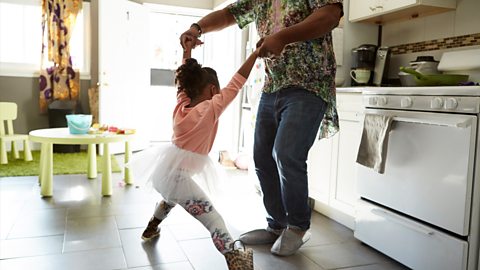
When the weather is bad, or if we have to stay indoors for whatever reason - it is hard to get outside and move around, but we still need to keep active. When we move our bodies, it has a positive effect on how our brain works, as the brain starts releasing chemicals that make us feel good.
âą Host a home disco. Play the familyâs favourite dance songs and have a boogie for ten minutes.
âą Watch ±«Óătv Super Movers videos. These short films can get the whole family moving (and learning). Learning routines (or just attempting them) means your childâs brain and body (and yours!) are keeping active and engaged.
âą Blow up a balloon. Once youâve tied it, see how long you can keep it up in the air while passing it between you.
2. Refuel

Being stuck at home together on a rainy day can cause frustration - so give everyone in the family a chance to refuel. It can be as simple as curling up on the sofa together and watching a film or some cartoons - and then chatting about your favourite bits.
Having these sorts of conversations can help to make the positive buzz of watching (and laughing) together last for longer. Itâll also improve your childâs ability to reflect on their experiences and talk about their preferences.
Stories are another great way to help children recharge as they lose themselves in wonderful fictional worlds. There are likely to be some old favourites they want you to read again, as theyâll take comfort from hearing a familiar tale (for children, knowing how it ends is a good thing, not a spoiler alert!).
3. Take in the good stuff
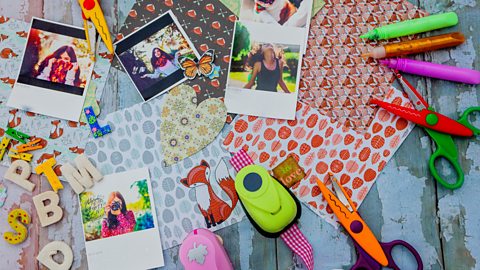
Itâs helpful for children (and adults) to have a healthy balance of emotions in a day. Fears and anxieties can, at times, overpower our positive emotions unless we make a conscious effort to re-address this balance.
Here are a couple of ways you can help your child to achieve this balance:
âą Make a âTop Timesâ scrapbook. Help your child to create a scrapbook of memories, with printed out photos, drawn pictures, saved tickets and other bits and pieces stuck in to help them remember. These donât have to mark occasions; they can capture smaller moments of joy, like throwing a ball for a dog or seeing a rainbow.
Once youâve built a collection of pages (and maybe several scrapbooks), you can enjoy looking through them together.
âą Create a gratitude jar. Another way to take in the good stuff is to write down a little note when somethingâs gone well and keep it in a jar or box. Younger children may prefer telling you what to write so you can record the experiences for them. As they get older, they may want to write their own notes.
You can encourage them by doing this alongside them. The great thing about a gratitude jar is you can revisit it on days when you need a little boost to remind everyone of the things youâve been grateful for.
Building gratitude habits doesnât mean we diminish the struggles that children (and we) experience. Itâs really important to talk about these difficult moments too. But, having a time in the day when you focus on the positive can be useful in helping children to keep their thoughts balanced.
4. Learn something new
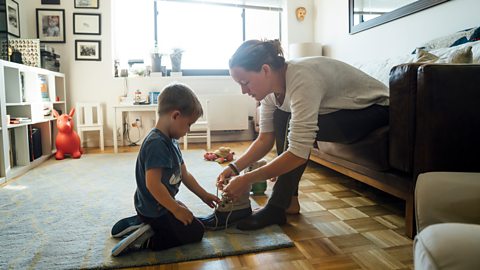
Having more time together offers an opportunity to set some goals about new things you and your child want to learn. It could be something that helps encourage their independence, like tying their own shoelaces or buttoning up their coat. Or it could be something that helps at home, such as how to put their clothes away or helping out with washing up. When children feel theyâre contributing to family âworkâ, it can enhance their sense of belonging. If your child is capable of doing things for themselves, give them as many opportunities as you can to practise these skills.
Whatever the learning goals, it can be helpful if children understand they can improve their skills and abilities. This is often referred to as a 'growth mindset' since itâs about realising we all have the ability to change the way we think and do things. So, whether itâs tying shoelaces, learning to spell, or even how to hop on one leg, the way adults talk to children about the learning will influence those childrenâs beliefs.
Here are two ways to encourage your child to adopt a growth mindset:
âą Add the word âyetâ. Changing the way you talk about intelligence and ability can help your child understand that learning is a process - our skills and traits arenât fixed from birth. When your child claims âI canât do thisâ (whether theyâre talking about a new hobby, homework, or anything else), say: âYou canât do it yetâ.
Adding and emphasising this tiny word subtly reinforces the learning process and may help them to try again.
âą Practise (and fail) with your child. Trying new things can be scary, but itâs often less daunting when you do it with others. As a family, you might decide to try something new and celebrate your learning and your failures when it doesnât work (the first, second, or even the ninety-ninth time!).
5. Take care of yourself

Being able to support your childâs wellbeing also involves taking care of yourself. As a starting point, try and eat nutritious healthy food; itâs a great idea to turn cooking into an activity the whole family takes part in. Life can often feel very busy and parents give themselves a hard time about being unable to do everything perfectly. Remember, though, there are no âperfect parentsâ.
We all get things wrong, we all have days when we struggle. And while it may be true that you might not have done everything âperfectlyâ, youâve probably done more things to support your childâs wellbeing than you realise. So, try and focus on what youâre doing well â itâs not you being boastful, itâs actually really helpful for your child to do this. Children can learn a lot from hearing adults respond kindly to themselves when things donât work out - and then from seeing the grown-ups try again. Notice how you speak to yourself about your mistakes. If you can cultivate kindness towards yourself, your child is more likely to practise this when they get things wrong too.
It might also be useful to take a moment and think about the activities, people and places that help you to feel brighter and refuelled. No matter how busy you are, try and squeeze in a little time for yourself. Itâs likely to help you with the many joys and challenges that parenting can bring.
Dr Hazel Harrison is a Clinical Psychologist with a particular focus on mental health and wellbeing.
For further information check out the rest of which has lots of ways to help prepare children for different aspects of school life â both practically and emotionally.
Parents' Toolkit
Fun activities, real-life stories, wellbeing support and loads of helpful advice - we're here for you and your child.

Bud's Number Garden
Join Bud the bee, explore his magical garden and practise recognising numbers, counting, sequencing and much more!
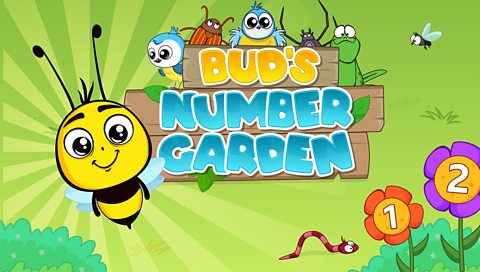
More Starting Primary School videos and articles
Head to our homepage to help you and your child prepare for starting primary school and thrive in school life.
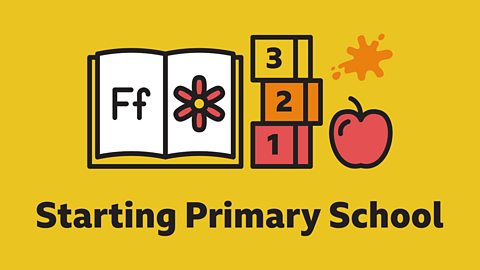
How to tackle anxiety with Dr Anna Colton
Dr Anna has made seven short films with easy to learn techniques.
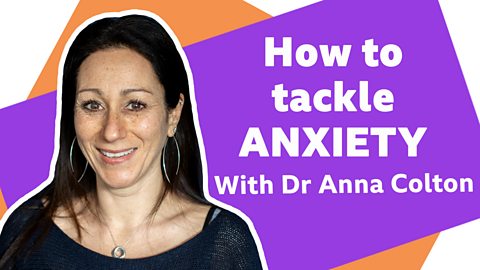
Michael Mosley: Five tips for helping your kids sleep well
Dr Michael Mosley offers advice on improving health and concentration through better sleep habits. Here are his tips for parents to help their kids.

Mental health first aid kit for parents: Who to ask and what to do
Worried that your child needs help with their mental health? Here's how you can access professional help and support your child while you wait.
